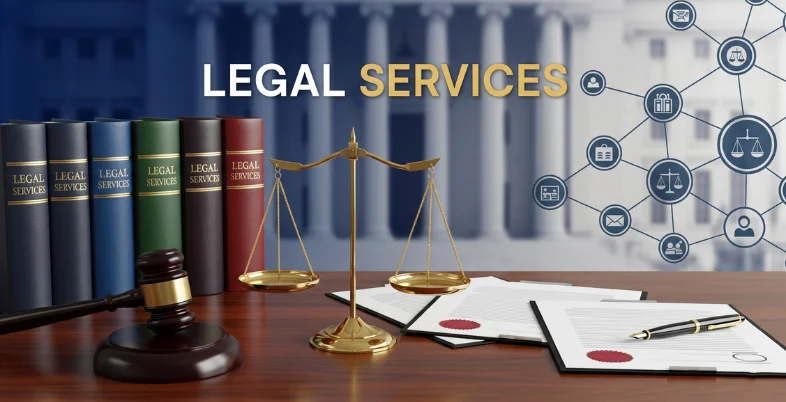Recessions can be scary for businesses, but the truth is not every industry suffers the same way. People will always need food, healthcare, education, and essential services, no matter how the economy is doing. That’s why some businesses are called “recession-proof”—they stay strong even in tough times.
In fact, the global economy is showing mixed signals: the IMF projects 3.2% global growth in 2025, while inflation in many countries is still higher than pre-pandemic levels. At the same time, essential industries like healthcare, utilities, and consumer staples are projected to see steady growth, with the global grocery market expected to reach $14.8 trillion by 2030. These numbers show why focusing on the right type of business can help you stay safe during economic uncertainty.
In this article, we’ll explore the Top 15 Best Recession-Proof Business Ideas that can give you stability, growth, and confidence, no matter what the market looks like.
Why Recession-Proof Businesses Matter
- Sustainable Demand of Essentials: The demand for food, medical care, utilities, or education is stable; these businesses keep flourishing due to the fact that people cannot skip such needs, despite the tightest budget.
- Reduced Risk of Failure: Recession-proof business ventures enjoy high demand, unlike luxury ones that start declining drastically during a recession period.
- Investor and Lender Confidence: Banks and investors view critical services as certainty bets and therefore entrepreneurs in such industries are more likely to secure financial resources even during periods of uncertainty.
- Customer Loyalty and Retention: Customers tend to be loyal to companies that offer cheap, quality and required goods or services that guarantee the business a continuous flow of customers.
- Opportunity to Grow: When other industries are shrinking, recession-proof businesses have the opportunity to grow by occupying vacancies within the market and acquiring clients due to weak competitors.
Key Things to Keep in Mind Before Starting
- Know Local Market Requirements: The simple fact that the business is recession-proof on a worldwide basis does not necessarily mean it will be profitable in all cities. Research the demographics and expenditure of your area to identify the best business opportunities and then decide.
- Start Small and Scale Over Time: You do not need to start with a heavy investment, but you can test your business model on a smaller scale. This will minimize the financial risks and will assist you in streamlining operations.
- Take Advantage of Internet Resources: The customers are moving to find low-cost services on the Internet. Creating an online presence via websites, applications or social media makes it more visible at a minimal cost.
- Provide Dynamic Pricing Structures: In recessions, clients seek cost effective alternatives. Your business can be more attractive with special offers, subscriptions and bundles.
- Pay attention to Long-Term Scalability: Select a business model that does not have to increase with enormous additional expenses such as digital services, delivery-based business model, or franchise opportunity. This makes the future growth and stability.
List of Top 15 Best Recession-Proof Business Ideas
1. Healthcare Services

Regardless of the state of the economy, people always need medical treatment, making the healthcare industry one of the most resilient to downturns. This sector offers important support in terms of general practitioners and urgent care clinics, as well as specialized healthcare services such as dental, physiotherapy, or home healthcare. As the population grows older, and more emphasis is given to preventive care, health related businesses will be in demand even in hard economic periods.
To begin a business related to health care there needs to be regulatory approvals, trained professionals and a good reputation of trust and reliability. Other niche markets that entrepreneurs can venture into are telemedicine, elderly services and diagnostics centers. Although it needs a lot of planning and adherence to health requirements, the demand is stable and guarantees growth in the long term.
Key Tips to Start:
- Ensure necessary licenses and certifications are obtained.
- Hire qualified and trustworthy healthcare professionals.
- Focus on patient care and transparency.
- Consider adding digital health services for convenience.
Investment Required: $12,000 – $60,000 (depending on scale and specialization).
2. Grocery and Essential Goods Store

People require food, household and daily supplies even during a recession. Grocery stores, supermarkets and even small convenience stores are among businesses that are flourishing as long as the economic times are good. Individuals can reduce their spending on luxuries, but food is a need, and this is a strong business concept.
Businessmen will have an opportunity to establish physical outlets in residential districts or even online grocery delivery services. Cooperation with regional farmers and distributors will help to save money and increase profitability. The provision of affordable, but quality products, guarantees customer loyalty to the company in times of low economic activities.
Key Tips to Start:
- Choose a location with high residential footfall.
- Offer home delivery options to attract busy customers.
- Maintain competitive pricing while ensuring quality.
- Build strong supplier relationships to manage inventory.
Investment Required: $6,000 – $25,000 (depending on store size and online/offline model).
3. Educational and Skill Development Services
Another industry that has not been affected by recessions is education as parents still invest in the future of their children and people want to acquire new skills that will enhance their employability. Online tutoring, coaching schools, test preparation schools, and vocational training programs are all in demand during slow periods in the economy, making them strong examples of recession-proof business ideas.
Indeed, recessions tend to increase the need for upskilling and reskilling activities, as individuals seek better jobs. Digital media simplify the process of reaching a large number of people at a reduced cost. Academic tutoring to IT certifications, this business concept is recession-proof and scalable.
Key Tips to Start:
- Identify niche areas like coding, language training, or competitive exams.
- Use online platforms to reduce overhead costs.
- Create affordable course packages.
- Partner with schools, colleges, or online marketplaces for student outreach.
Investment Required: $2,500 – $18,000 (depending on whether online or offline).
4. Repair and Maintenance Services

In recessions, individuals opt to repair their gadgets and vehicles or appliances rather than purchasing new ones. This makes repair and maintenance services a very recession insensitive business. Electronics repair stores, auto service, home appliance repair, etc. need low-cost repair options all the time.
There are also specialized repair services such as smartphone repair, AC repair, plumbing and electrical repairs, which can generate a constant flow of income. With an experienced team, an entrepreneur is able to begin small and grow by word of mouth and local marketing.
Key Tips to Start:
- Focus on a high-demand niche like mobile, laptop, or car repairs.
- Hire skilled technicians or get trained yourself.
- Offer affordable pricing compared to replacement.
- Provide home service options to attract more customers.
Investment Required: $1,200 – $12,000 (depending on scale and services).
5. Food & Beverage (QSR and Cloud Kitchen)
Food is a need and despite recessions, the population will still spend on food, particularly cheap ones. QSRs, tiffin services, and cloud kitchens have become popular with their affordable and hygienic food. Customers might eat out less, but they will not stop eating out or ordering online.
Cloud kitchens, specifically, are less expensive to invest in than restaurants because they do not need a dining area. It is easier to reach large scale by partnering with food delivery apps. Entrepreneurs may develop a customer base by providing low pricing, homey, or specialized foods.
Key Tips to Start:
- Focus on affordable and popular cuisines.
- Register with food delivery apps for better reach.
- Maintain high hygiene and quality standards.
- Start with a small menu and expand gradually.
Investment Required: $4,000 – $18,000 (depending on kitchen size and location).
6. Cleaning Services

Cleaning services are not going away anytime soon because households and businesses emphasize hygiene. Whether it is domestic cleaning, office cleaning and specialized cleaning such as carpet cleaning and deep cleaning, people prefer outsourcing all these cleaning activities due to the convenience and health advantages associated with outsourcing these services. Customers of all types, particularly businesses, still require cleaning services to make their workplace look professional, which makes it one of the most reliable recession-proof businesses to consider.
This is a scalable business since you can start small with minimal equipment and expand into a professional cleaning firm with knowledgeable staff. Cleaning that are friendly to the environment and chemical-free are also becoming very popular, and so the entrepreneur can be distinguished in the market.
Key Tips to Start:
- Start small with residential clients before moving to commercial contracts.
- Offer subscription packages for regular income
- Invest in eco-friendly products to attract conscious customers.
- Train staff for consistency and professionalism.
Investment Required: $1,500 – $10,000 (depending on scale and equipment).
7. Digital Marketing Services

Companies keep spending on online marketing in the times of recessions as visibility online is the key to survival. Firms can reduce the amount of standard advertising, however, they tend to spend more on digital marketing, as it promises more returns. SEO services, social media marketing, PPC advertising, and content development are still in demand.
The agencies and even freelancers can succeed by offering cheap and outcome-based services. Digital marketing offers interested professionals a business opportunity with few overheads and opportunities to work remotely, which is recession-resistant.
Key Tips to Start:
- Gain certifications in SEO, PPC, and social media platforms.
- Start freelancing before scaling into a full agency.
- Focus on measurable ROI to attract clients.
- Build a strong online portfolio showcasing results.
Investment Required: $500 – $7,000 (mainly for software tools, marketing, and team building).
8. IT Support and Cybersecurity Services
With more and more companies turning to electronic platforms, IT support and cybersecurity services are becoming crucial. Businesses simply cannot risk downtime or data security breaches even in the face of economic recessions. Network security, server management, and IT troubleshooting are services that will not run out of demand.
IT support is particularly outsourced by small businesses because it saves money on paying full-time employees. IT experts can provide services on a subscription model where they are paid regular revenues by the entrepreneurs. This is a strong industry and will continue to expand even in periods of recession because of the increasing cyber threats.
Key Tips to Start:
- Obtain certifications in cybersecurity and IT support.
- Offer tiered pricing models for small and large businesses.
- Provide 24/7 remote support to attract global clients.
- Continuously update skills to tackle new security threats.
Investment Required: $3,000 – $20,000 (mainly for infrastructure, software, and staffing).
Also Explore Some Other business Ideas:
9. Funeral Services
Funeral services are one of the most recession-proof business ideas because they provide essential end-of-life care. No matter the economy, families require funeral arrangements, cremation, or burial services. It is a reliable and essential business, despite the fact that it may not be glamorous.
Providing compassionate, affordable, and professional services ensures consistent demand. Many businesses in this industry also offer pre-paid funeral plans, which provide long-term stability. Entrepreneurs focusing on empathy and reliability can build a trusted reputation in this field.
Key Tips to Start:
- Focus on customer service and sensitivity.
- Offer flexible packages to suit different budgets.
- Ensure compliance with local regulations and permits.
- Consider eco-friendly funeral options as an emerging trend.
Investment Required: $10,000 – $75,000 (depending on facilities and services offered).
10. Childcare Services

Parents still work in recessions, so childcare remains a service that is necessary. Daycare centers, babysitting and after school programs are in constant demand particularly in urban areas where working parents require dependable care.
This is a business that needs a secure place of operation, qualified personnel, and emphasis on the well-being of children. Providing learning tasks, nutritious food, and adaptable offers could help you to make your childcare service unique. As more households have two incomes, this industry is still in the boom.
Key Tips to Start:
- Ensure safety standards and child-friendly infrastructure.
- Hire trained caregivers and staff.
- Offer flexible hours and affordable packages.
- Build trust with parents through transparency and communication.
Investment Required: $8,000 – $40,000 (depending on size and facilities).
11. Accounting and Tax Services
Tax and accounting services are the most recession-proof services since companies and individuals need to take care of their finances no matter the weather. Tax filing, bookkeeping, auditing and financial consulting are services that the company will still need despite reducing expenses.
In the times of recession, the companies seek to plan the ways of minimising costs, taxation and obeying the rules of taxation, which makes the cheaper and good accountants more popular. The presence of online and offline services is a potential way to increase reach and appeal to long-term customers.
Key Tips to Start:
- Obtain necessary certifications or hire qualified accountants.
- Focus on small businesses and freelancers who need affordable services.
- Offer both one-time and subscription-based plans.
- Use accounting software to streamline operations.
Investment Required: $2,000 – $15,000 (for software, office setup, and marketing).
12. Logistics and Delivery Services
As e-commerce and on-demand business grows, logistics and delivery services are still booming- even in recession periods. People can spend less on luxuries, though they continue to place orders on groceries, essentials, and low-cost products online. This makes last-mile delivery services an ever-needed item.
Local deliveries can be used to begin with small entrepreneurship ventures, and then grow to involve food outlets or e-commerce service providers. The secrets to success in this industry include affordable prices, service, reliability, and timely service.
Key Tips to Start:
- Begin with a niche like grocery or food delivery.
- Invest in reliable vehicles and trained drivers.
- Use delivery tracking apps for better customer experience.
- Partner with local businesses for steady contracts.
Investment Required: $5,000 – $25,000 (depending on fleet size and software integration).
13. Legal Services

Legal services are essential during good and bad times. In fact, recessions, disputes, bankruptcies, renegotiations of contracts, and compliance issues become more frequent, and thus the services of legal professionals are essential. Legal services are usually needed for family disputes and corporate law.
A legal firm or freelance legal consultation can be a viable business to start. The business can even be made more resistant to recession by specializing in such things as employment law, debt recovery, or business restructuring.
Key Tips to Start:
- Obtain required legal qualifications and licenses.
- Focus on fields with high demand, such as business law, employment, or tax.
- Offer affordable consultation packages.
- Build a reputation through referrals and partnerships.
Investment Required: $3,000 – $20,000 (mainly for licenses, office setup, and staff).
14. Utilities and Energy Services
Essential needs, like electricity, water and services related to energy, are non-negotiable. Maintenance, installation, or energy-saving businesses are doing well even when recessions occur. Also gaining popularity are renewable energy options such as installing solar panels and energy audits.
Businesses and households seek energy solutions that save money in times of downturns, which provides business opportunities in the field. A utility or energy service business provides a guarantee of recurring revenue and long-term contracts.
Key Tips to Start:
- Explore renewable energy solutions to stand out.
- Obtain necessary technical certifications.
- Partner with residential complexes and businesses.
- Offer maintenance and after-sales services for recurring income.
Investment Required: $8,000 – $50,000 (depending on equipment and service scope).
15. Waste Management and Recycling Services

Waste management/recycling services are recession resistant because they interact with environmental and regulatory requirements. From the collection of garbage in the house to the recycling of garbage in the industry, this business is not only needed but also getting more appreciated due to its sustainability.
Some of the areas that entrepreneurs can specialize in include e-waste recycling, plastic recycling, or composting services. As the environment issues grow, business and governments are putting more money in this business, which guarantees future demand.
Key Tips to Start:
- Identify a specific niche like e-waste or organic waste.
- Partner with local authorities or communities.
- Invest in eco-friendly and efficient equipment.
- Educate customers about the importance of recycling.
Investment Required: $10,000 – $60,000 (depending on scale and machinery).
Conclusion
To sum it up, recession-proof companies show that some ideas are never out of favor even in trying moments. Since these sectors such as food, healthcare, repair, education, and childcare provide services that individuals cannot afford to do without, they are still flourishing. Players who enter these industries enjoy stability, steady income, and growth prospects, making them some of the best recession-proof business ideas to consider.
With proper planning, moderate investments, and a focus on fulfilling real needs, your business will be able to ride the economic highs and lows. A good decision now may develop into a long term business that will survive any economic climate.
FAQs
1. Can Small Businesses Survive a Recession?
Yes, small businesses can survive and even grow during a recession if they focus on essentials, manage costs wisely, and maintain customer loyalty. Many consumers prefer affordable, local, and trustworthy businesses during tough times, which gives small entrepreneurs a strong advantage.
2. Is It Risky to Start a Business in a Recession?
Starting a business in a recession may seem risky, but it can actually be a smart move if you choose the right industry. Since competition is often lower and many businesses scale back, new entrepreneurs can step in to fill the demand for reliable, affordable services.
3. Which Industries are Most Stable During a Recession?
Industries related to healthcare, food, education, childcare, repair services, digital services, and utilities are considered the most stable. These sectors meet ongoing human needs and are less affected by changes in consumer spending habits.
